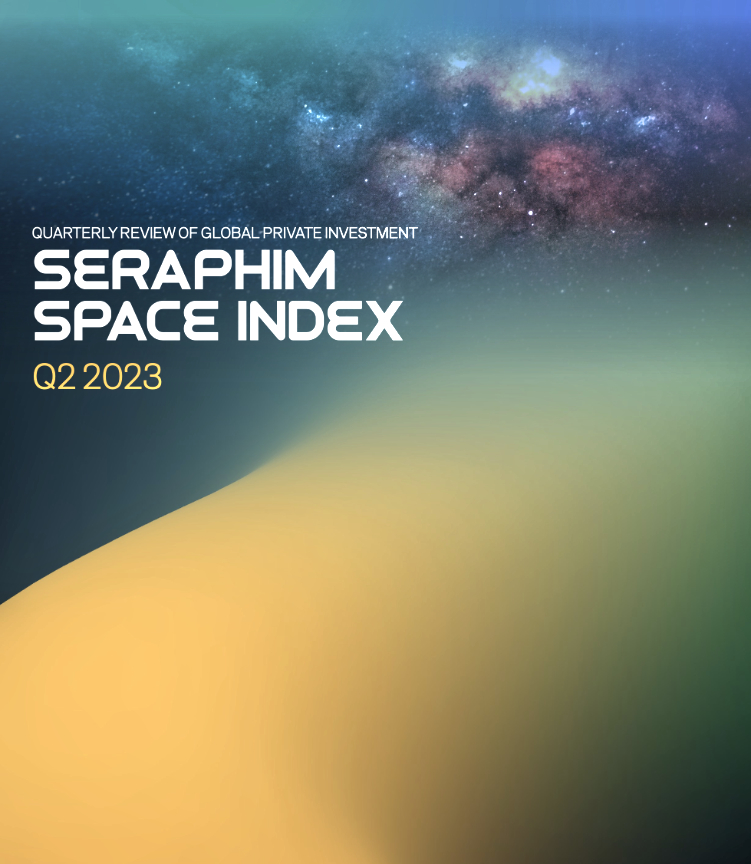
Seraphim Space, known as Generation Space in the U.S., which runs the leading, dedicated accelerator for startups in the global space technology (SpaceTech) industry, announces the companies that are participating in Mission 12.
Since 2018, the program has assisted 91 startups and the mission 12 cohort will be joining an impressive alumni of SpaceTech companies, who have collectively raised more than $320 million with 86% of companies that go through the accelerator within 12 months, and 93% of companies have been successfully funded, with the average post-accelerator raise being $4 million.
The accelerator now has an established presence in APAC, with the company announcing its presence in Singapore at SuperReturn Asia in September. The global representation in Mission 12 reflects the exponential growth of the space economy. According to the Seraphim Space Index, European deal numbers have grown by over 60% in comparison to last year and Asia is also making its mark with a 79% increase, showing that the SpaceTech industry continues to develop and increase its representation globally.

Mission 12 sees Leidos, a Fortune 500 technology, working to solve the world’s toughest challenges in defence, intelligence, civil and health markets, join as a new sponsor. The accelerator is a three month program that supports SpaceTech companies from inception to IPO, helping them to forge key relationships with some of the world’s leading corporates and agencies operating in the space sector as they raise capital to commercialize their technology
The accelerator proudly continues its relationship with key corporate parties and industry bodies, including ESA – as part of a multi-year partnership alongside ESA’s ScaleUp program to help uncover the most exciting early-stage companies in Europe. Other key partnerships include the UK’s National Security Strategic Investment Fund (NSSIF), UKSA, Airbus, Cobham, Dentons, DSTL, Cyient, and Satellite Applications Catapult, enabling the participating startups to engage with industry leaders and forge partnerships and contacts that have a real impact on their growth.
The cohort members focus on areas including space-pharma, multi-modal propulsion, ESG and green finance
- Applied Atomics (UK)— Applied Atomics has developed a modular assembly spacecraft capable of providing different on-orbit services for any satellite or space-based infrastructure.
- Aquascope (UK) — Providing advanced freshwater intelligence to support and enable both businesses and governments with climate adaption, investment planning and pollution forecasting.
- BioOrbit (UK) — Reinventing the development of treatments to meet healthcare demands through the large-scale crystallization of proteins, enabling a transition from intravenous (injecting into a vein) to subcutaneous (injecting under the skin) administration of cancer treatments.
- Optimal Cities(UK) — Urban planning is outdated and adapting cities to modern health and climate problems has become nearly impossible. Optimal Cities is providing the first all-in-one digital planning platform, integrating GeoAI and satellite intelligence that allows planners, real estate developers and authorities to save up to 80% of time dedicated to data analysis to help cities reach their socio-economic and environmental goals.
- Four Point (Poland) — The ever-growing demand for natural resources is causing a massive burden on the environment – impacting air, sound, ground and water pollution. Four Point is reducing the environmental impact of opencast mines by merging geospatial data to generate real-time insights into ground conditions.
- SkyFi (USA) — Historically it has been challenging to access and understand satellite or aerial data. SkyFi has developed a library of archival data as well as open and on-demand data that can task satellites to capture new imaging without the need for complex contracts or sales processes. All of which can be accessed through a simplified, user-friendly interface.
- FreeFall Aerospace (USA) — FreeFall is developing disruptive antenna technology for ground and space, including antennas that can be stowed and deployed with efficient beam steering, drastically reducing the mass, power, complexity, and costs of satellites. The same power and cost-saving technology has been applied to ground antennas.
- Astrogate Labs (India) — Enabling high-speed communications for small satellites that can provide 20x bandwidth at a third of the cost. The proprietary laser communication system is designed to meet the harsh conditions for space applications.
- Kumi Analytics (Singapore) — Kumi Analytics has developed a platform to scale voluntary carbon offsets from project planning and development through long term monitoring and verification. The platform utilizes geospatial data and AI to do this in a fraction of the time at a lower cost with improved accuracy and transparency.
- Transitry (Singapore) — Developing an AI and blockchain platform allowing for transparent and traceable data to drive capital commitments to demonstrate credible climate impact claims by first parties.
The Accelerator’s unique position at the epicentre of the New Space ecosystem continues to attract startups from all over the world – with this year’s cohort being scouted from five countries across three continents. Startups continue to flourish in spite of a tough economic climate and future accelerator cohorts will be enhanced through the company’s recent collaboration with the UK Space Agency. The company recently won the UK Space Agency’s International Bilateral Fund Phase 1 grant – which will further expansion plans in Singapore. This grant has also been included in the Department for Business and Trade and the Singaporean Government’s announcement at the International Astronomical Conference – highlighting the bilateral cooperation between the nations.
There have been a number of success stories among the program’s alumni. Mission 10 participants, Auriga, a startup developing a novel kinetic launch system, recently raised a $4 million seed round from the Seraphim investment fund.
“Our growing presence in APAC is particularly exciting, as the appetite for SpaceTech innovation and investment intensifies in the region. Winning the UK Space Agency’s International Bilateral Fund Phase 1 grant is a significant milestone, reflecting our commitment to developing SpaceTech opportunities in territories beyond the US and Europe. As we move into our 12 cohort and sixth year I’m also delighted that we can evidence industry-leading accelerator statistics for fundraising success. Since the accelerator was launched over six years ago, we have witnessed an extraordinary period of growth and maturity within the space sector. Higher investment, improved infrastructure, and digital technologies are all contributing factors to the next generation of SpaceTech startups. Despite a turbulent macroeconomic outlook, the space sector remains resilient and activity in the sector remains strong, with the number of Seed deals growing by almost 55% year-on-year.” — Rob Desborough, Managing Partner, Seraphim Space/Generation Space, CEO of the Accelerator
Story is authored by Leah Seraphim
